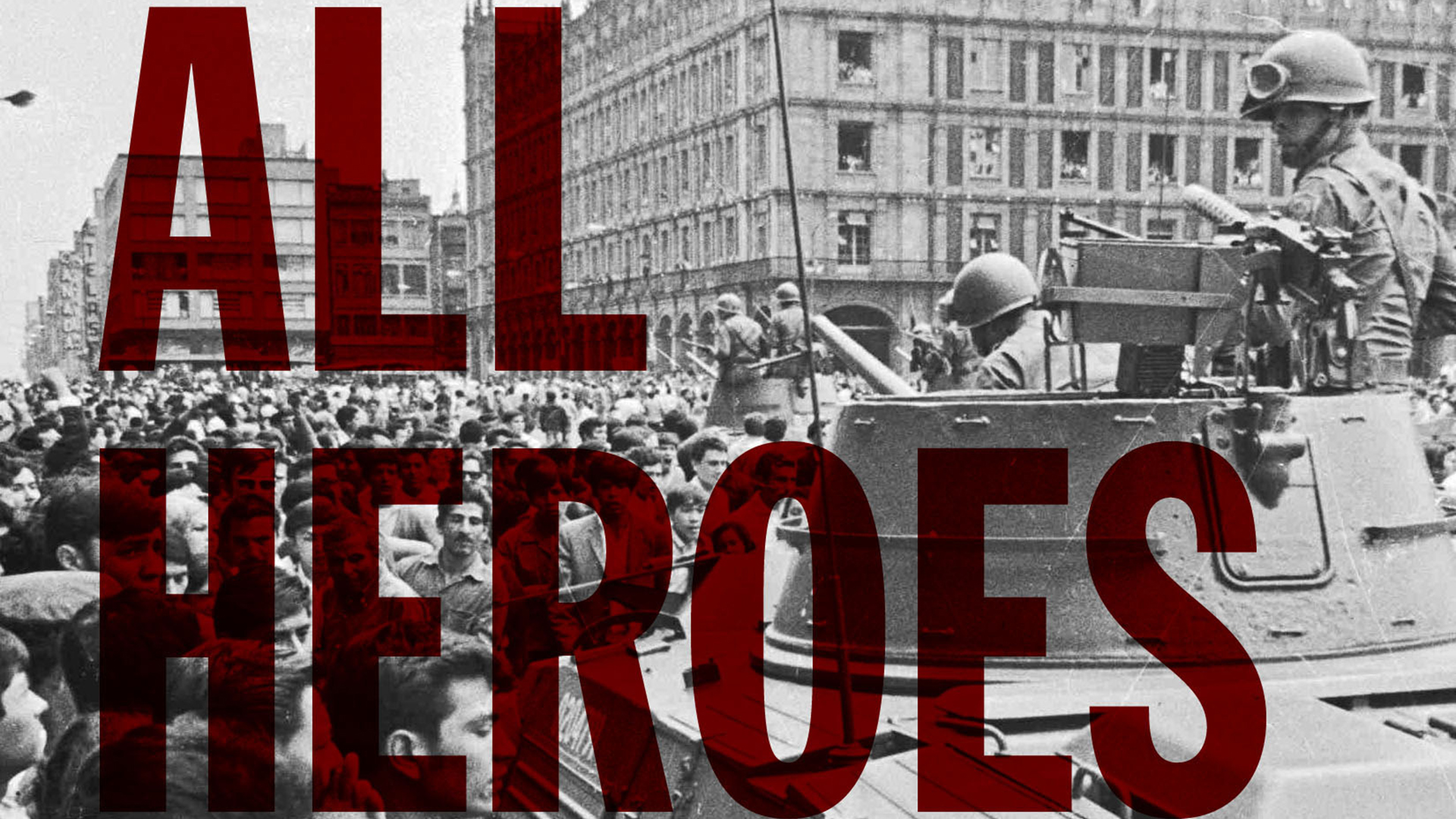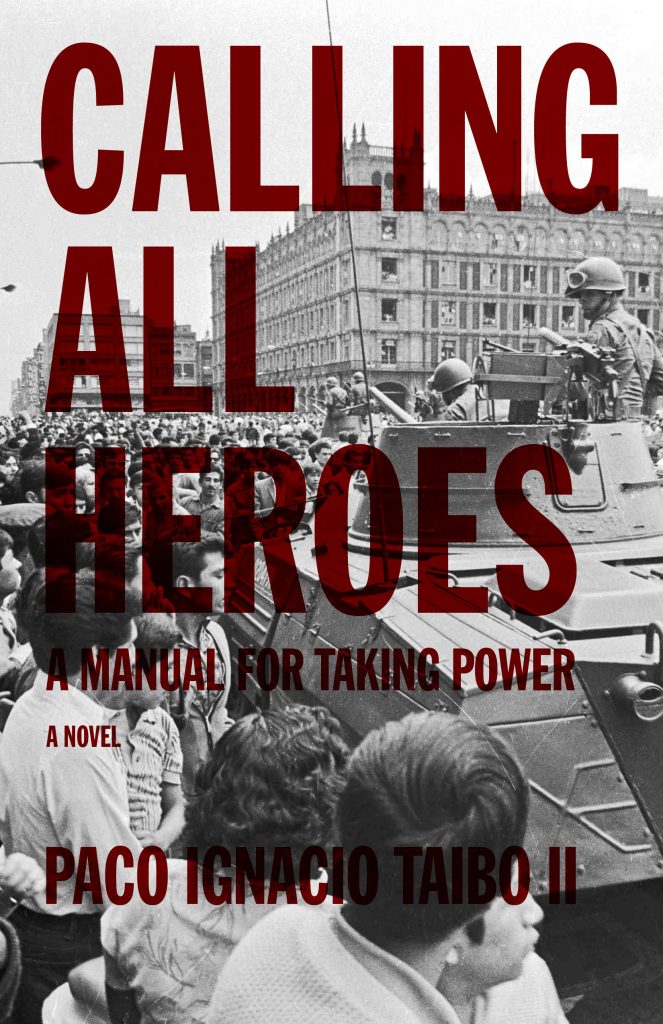By Travis Fristoe
Maximumrocknroll #330
November 2010
Calling All Heroes: A Manual for Taking Power sounds like nonfiction, a primer. Don’t be put off by the title. What we have here instead is an adventure story about getting back at the cops, the government & the military: “I’m going to get everyone together and we’re going to kick their ass.”
The backstory is important. The author, Paco Ignacio Taibo II, is a prolific Mexico City novelist, most famous for his mystery stories. Taibo was part of the 1968 student uprising that was violently quelled. The protestors had 123 days of “hope for future fulfillment” before the defeat, forcing them to “take refuge inside ourselves and in a bleak militancy.” Further, Taibo explains: “Under these deplorable conditions, this shortest of novels was created. Brewed in the midst of a premature divorce following a premature marriage, of a political crisis, of an era of hunger and unemployment, the novel became a pretext, a vendetta, dealing with Power by other means.”
Taibo then shrewdly waited and re-wrote the novel three times over the intervening twelve years. The ghost of what could have been haunts us still. But a compelling backstory is not always enough to make a worthwhile book. Taibo’s patience here is the reader’s gain, and the symbols he uses resonate even in translation. A young journalist is stabbed while on the trail of a prostitute killer in Mexico City. His memory is hazy about the incident and he writes his friends to ask what happened.
The crime and brutality might sound slightly like the murders of women evoked in Roberto Bolano’s 2666 but the tone is very different. This book’s structure is a chorus of voices, the construct being letters and memories back to the author about just what happened between January 14 and 26, 1970. Our narrator then gets the idea to appeal in letters to all the valorous heroes of his youth. His list is global, all male and a mix of different time periods—the Mau Maus, Sherlock Holmes, Doc Holliday, the Tigers of Malaysia, the Four Musketeers, Yanez de Gomera and the Light Brigade. Plus a few others that you may find exhilarating or absurd.
Were these heroes willing to come to Mexico’s aid? “‘They were ready and waiting.’ There couldn’t be so much disillusionment, so much defeat. If it could be understood, it could be explained . . .” They do come. You can imagine the incandescent fantasy of what happens next: A dead pig thrown at the foot of the United States Embassy and an insurrection relived, successfully this time. A young man’s fever dream while prostate in a hospital bed. Given the list of heroes, you might ask if it’s like the Rancid song “Sidekick,” where Lint runs through the streets with Wolverine from the X-Men. Yes, it’s like that. In the good ways.
What I found more haunting though were the responses from the friends, particularly those lacerating Paco Ignacio: “I don’t know about you but I was a sad guy of twenty who wrote fotonovelas for a living (which sometimes paid nothing), roamed a city that had been ours and we had lost, rented a room in the Condesa district, had a record player, read Faulkner, Rodolfo Walsh, Italo Calvino, and Dos Passos, and watched it rain.”
This book isn’t an alternate history the way that Philip Dick’s Man in the High Castle retold World War II. This is a retelling by a crushed participant who spent the subsequent years wrestling with the rubble: “Everyone is gone but no one has finished going. Everyone has guilt but no way of explaining it. Something will have to happen.” As you may have already surmised, there’s an acute lack of female voices, and the characters are full of “ragged sarcasm.” I trust you as a reader to know if that’s something that the rousing plot overcomes. Who wouldn’t like to revisit the past armed with a cinematic army and tempered by the critiques of our friends?
The novel is part of PM Press’s Found in Translation series. And John Yates is to be again commended for the design of the book cover.







